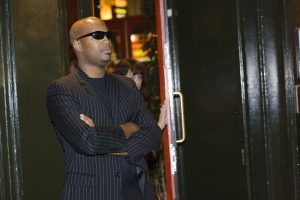 Following the recent Orlando nightclub tragedy, CNBC spoke with industry security consultants, Bob Smith and Cynthia Harris, to address common nightclub security vulnerabilities and what bar and nightclub owners can do to deter crime and protect patrons.
Following the recent Orlando nightclub tragedy, CNBC spoke with industry security consultants, Bob Smith and Cynthia Harris, to address common nightclub security vulnerabilities and what bar and nightclub owners can do to deter crime and protect patrons.
Vulnerabilities & Preventative Techniques
- “Whether it’s a bar, nightclub, church or school, business owners need to assess inherent threats to their location based on local crime rates and previous incidents.”
- “[B]usinesses can strengthen security protocols by instituting pat-downs or metal detection devices at entrances; stipulating that music in the location is turned off during an altercation; and training staff regularly to deal with threats.”
- “[A] major vulnerability for bars and nightclubs, specifically, is the time at which these locations close….not only have the patrons at the business likely been drinking, but the staff is nearing the end of their shifts and could be tired and less vigilant.”
Patron Rights and Nightclub Responsibility
Nightclub patrons have a right to be safe and secure while on the premises of the establishment that they are visiting. By law, nightclub owners and managers have a duty to protect patrons from any foreseeable harm.
Bar and nightclub owners are encouraged to implement property security precautions and preventative measures, such as those outlined above, to protect patrons and reduce property violence, injuries and deaths.
We’ve Recovered Millions for Victims of Nightclub Security Negligence…Contact us Now for a Free Consultation.
 The Murray Law Firm has an extensive and successful record representing victims of violence and security negligence. We have recovered millions of dollars for our Clients, and we recently obtained a $29.25 million dollar verdict for a victim of an unsafe property. We offer our legal assistance, if desired.
The Murray Law Firm has an extensive and successful record representing victims of violence and security negligence. We have recovered millions of dollars for our Clients, and we recently obtained a $29.25 million dollar verdict for a victim of an unsafe property. We offer our legal assistance, if desired.
We represent our Clients on a contingency agreement, which generally means that no fees or payments are owed until and unless we recover. Anyone seeking further information or legal representation is encouraged to contact us via e-mail (click here) or by telephone at 888.842.1616. Consultations are free and confidential.
Choosing the Right Attorney
Selecting the right attorney for you or your family is highly important. You must feel confident that the attorney you hire has a complete understanding of the law applicable to your particular case, and has successful experience in handling such cases.
Important: Do not hire a lawyer who has violated the Rules of Professional Conduct!!!
You should not hire an attorney who calls you or visits you unsolicited, or anyone that contacts you directly to offer legal services. This activity is strictly prohibited by Rule 7.3 of the American Bar Association (ABA) Model Rules of Professional Conduct, which states as follows:
 A LAWYER “SHALL NOT” CONTACT A PROSPECTIVE CLIENT THROUGH A “LIVE TELEPHONE” OR AN “IN-PERSON” VISIT.
A LAWYER “SHALL NOT” CONTACT A PROSPECTIVE CLIENT THROUGH A “LIVE TELEPHONE” OR AN “IN-PERSON” VISIT.
– RULE 7.3, ABA MODEL RULES OF PROFESSIONAL CONDUCT.
If an attorney, or someone acting on behalf of an attorney, contacts you in this manner, that attorney is in violation of this Rule. This unethical and unprofessional activity on the part of the lawyer is good sign that you should stay away. It is imperative that you are represented by an attorney who is capable of advocating for you within the confines of the law, and an attorney who fails to abide by the Rules of Professional Conduct is probably not the best fit. In fact, any such attorney should be immediately reported to the local State Bar Association. If you have been contacted in such an unsolicited manner, contact us and we’ll assist you in filing a report.
Contingency Fees Disclaimer: “Contingent attorneys’ fees refers only to those fees charged by attorneys for their legal services. Such fees are not permitted in all types of cases. Court costs and other additional expenses of legal action usually must be paid by the client.”
 The Legal Herald
The Legal Herald


